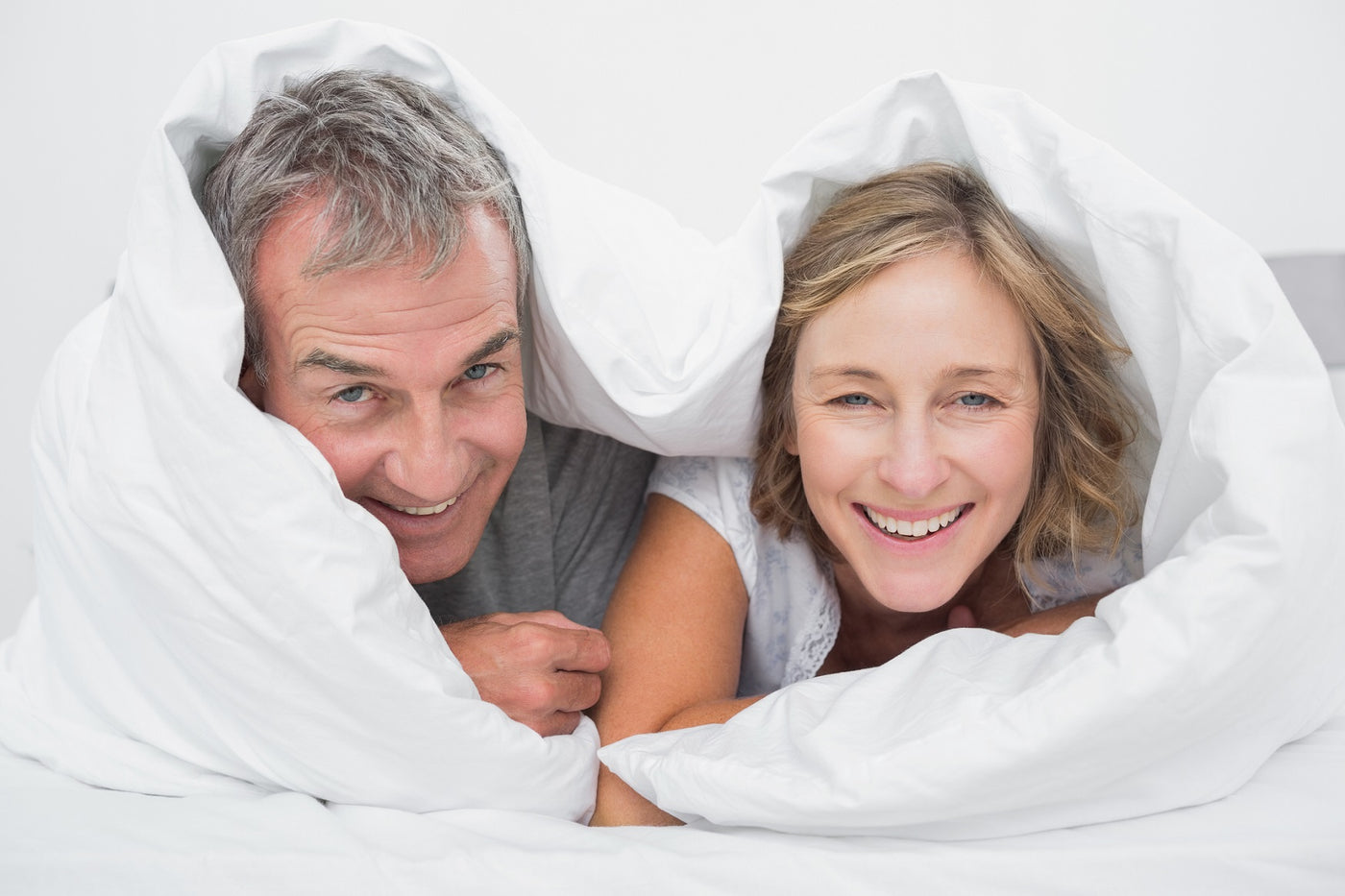Your Cart is Empty
- Shop
- About
- Learn
- Free Domestic Shipping Over $50
- +1(800)929-8935
- Login
- Free Domestic Shipping Over $50
- +1(800)929-8935

 Research shows that common reasons adults have trouble sleeping include depression, anxiety, physical pain, and an unhealthy diet. However, did you know that external factors like how your bedroom environment is set up can also affect the quality of your sleep¹?
Research shows that common reasons adults have trouble sleeping include depression, anxiety, physical pain, and an unhealthy diet. However, did you know that external factors like how your bedroom environment is set up can also affect the quality of your sleep¹?
Temperature, sound, and lights, in particular, contribute to restlessness. Fortunately, they can also play important roles to a good night's rest if set in a way that matches your body's preference for comfort.
 It's common knowledge that stuffiness, glaring lights, and noise are not the ideal things to take to bed. We make a conscious effort to remove them from the room once it's time to sleep. However, the current setup of your sleeping area may allow these disturbances in without you noticing.
It's common knowledge that stuffiness, glaring lights, and noise are not the ideal things to take to bed. We make a conscious effort to remove them from the room once it's time to sleep. However, the current setup of your sleeping area may allow these disturbances in without you noticing.
One of the reasons why adults have trouble sleeping is inadequate airflow in their bedroom, which can worsen breathing issues for those who have lung or heart ailments. As a result, they wake up more frequently at night. Research has found that room temperature is a more likely contributor to sleep problems than noise².
 2.) Blue light keeps your mind active
2.) Blue light keeps your mind activeThe blue light that typically comes from smartphones and TV screens can cause eye strain and fatigue. Research has shown that prolonged exposure to blue light can keep you alert by tricking your body's circadian rhythm (internal clock)³. Blue light also suppresses melatonin, the hormone that tells us to go to sleep. Your natural melatonin levels may still decrease even if you've activated your phone's "night shift" to eliminate blue light.
 3.) Artificial noise causes irritability
3.) Artificial noise causes irritabilityAs much as we want to keep our bedroom quiet, sound can still seep in, especially if you live in a densely populated neighborhood or near busy roads. Vehicles speeding, people walking, dogs barking—these are just some of the frequent disturbances at night.
What can you do to reverse the effects of the three invisible causes of sleep problems?
Consider the following when optimizing your sleep environment:
 1.) Good airflow regulates breathing patterns
1.) Good airflow regulates breathing patternsIf you are having trouble sleeping at night, you might start by making adjustments to your air-conditioning system. Counter the effects of poor ventilation by letting air flow more freely, which helps regulate your breathing in turn. Aside from an undisturbed rest, a breathable room also makes you feel less sleepy when you wake up and enables you to concentrate better on your daytime activities.
 Not all kinds of light are detrimental to your rest. They are helpful if you expose yourself to the right type of light at appropriate hours. Remember your circadian rhythm? You can "train" it by bathing in brightness during the day⁴ and dimming your home in the evening hours. Doing so trains your body to take advantage of waking hours and rest periods.
Not all kinds of light are detrimental to your rest. They are helpful if you expose yourself to the right type of light at appropriate hours. Remember your circadian rhythm? You can "train" it by bathing in brightness during the day⁴ and dimming your home in the evening hours. Doing so trains your body to take advantage of waking hours and rest periods.
 Unless you have a soundproof room, shutting out all noise can be close to impossible. Instead of reaching for earplugs, make the most out of your natural surroundings by purposely welcoming rhythms like river currents, rustling leaves, and chirping birds. These earth sounds can act as white noise that calms you down. If you don't live near a stream (as most of us don't)? Consider purchasing a white noise machine or downloading an app that plays calming sounds of nature.
Unless you have a soundproof room, shutting out all noise can be close to impossible. Instead of reaching for earplugs, make the most out of your natural surroundings by purposely welcoming rhythms like river currents, rustling leaves, and chirping birds. These earth sounds can act as white noise that calms you down. If you don't live near a stream (as most of us don't)? Consider purchasing a white noise machine or downloading an app that plays calming sounds of nature.
Creating an optimal sleep environment doesn't mean doing a significant renovation. Do a quick assessment of your bedroom and use these tips to help make surprising improvements to the quality of your sleep.
(1) Healthy Sleep (January 2008) External Factors that Influence Sleep
(2) Okamoto-Mizuno, K; Mizuno, K (May 2012) Effects of thermal environment on sleep and circadian rhythm
(3) Sleep Foundation Org (February 2017) How Blue Light Affects Kids & Sleep
(4) Blume, C; Garbazza, C; Spitschan, M (September 2019). Effects of light on human circadian rhythms, sleep and mood